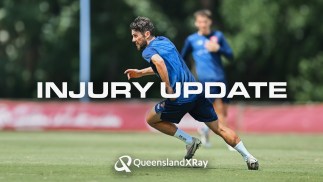The most high profile, widely talked about incident in the Hyundai A-league this weekend was the second red card in the Melbourne Victory v Brisbane Roar match.
The most high profile, widely talked about incident in the Hyundai A-league this weekend was the second red card in the Melbourne Victory v Brisbane Roar match.
Prior to the season commencing, clubs and head coaches requested that referees pay specific attention to player welfare and safety on the park by ensuring that all players are protected from dangerous and careless tackles. This message was communicated to all clubs.
On this basis, one of the main Key Performance Indicators advised to referees this year is that of “Protecting the Players’ Safety”.
Each club and FFA continue to invest heavily in the league year in, year out, and a major part of this investment is the recruitment and retention of skilful players at all levels. Referees have an important part to play in the Hyundai A-league-s success and of course, player welfare.
The referees- focus is to enforce the laws of the game and by applying that as consistently as possible will ensure that we are successful at protecting the player-s safety.
The laws of the game read as follows:
“A tackle that endangers the safety of an opponent must be sanctioned as serious foul play (red card).
“Any player who lunges at an opponent in challenging for the ball from the front, from the side or from behind using one or both legs, with excessive force and endangering the safety of an opponent is guilty of serious foul play.”
Consistent with the above, it is hard to be critical of the referee in this match for sending off the Melbourne victory player for a few reasons:
1. The Melbourne Victory player clearly played the man not the ball by lunging.
2. The laws do not allow the referee to take into consideration intent, so if the tackle is with excessive force he must deem it serious foul play.
3. The referee must in a split second and without benefit of replay make a decision.
4. If a player tackles in the way this player did then he certainly runs the risk of the referee interpreting this tackle as serious foul play.
The question also remains, what if the Roar player sustained an injury from that tackle (which the referee is not to know at the time) and the referee had not sent the player from the field?
My initial reaction was that the tackle deserved a red card.
In an effort to achieve our Key Performance Indicator this year of protecting the players- safety, I don-t think we can be critical of referees who are willing to make the very tough decision.
If we are consistent in this approach at the very least the players and clubs can take comfort in the knowledge that the referees are willing and aiming to deal with bad tackles that can cause injury.
In the end, the players can only benefit from this.




